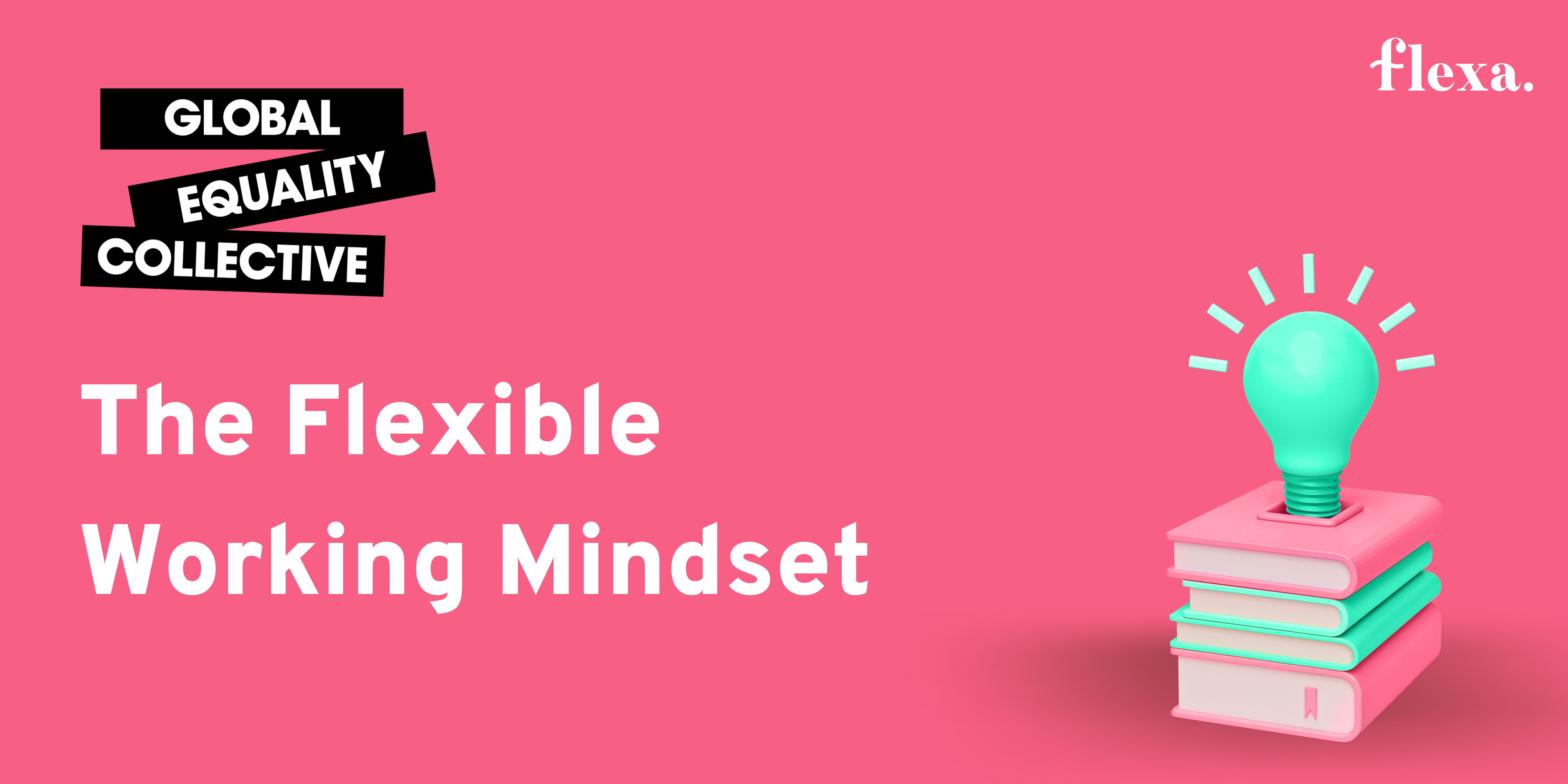The Flexible Working Mindset
Cat Wildman at the Global Equality Collective talks about flexible working and the mindset changes that need to come with it in order for it to truly work and be inclusive for all.
28th May 2021

The fundamental issue standing in the way of flexible working becoming a thing that we all just expect, is the same issue that’s underpinning gender gaps and the halting efforts of organisations to bring about diversity and inclusion.
Organisations just don’t get why they are doing it.
They’re ticking a box to make a certain number of roles flexible, and agreeing flexible working requests on a case by case basis, but the needle isn't moving. This is because they’re doing it all with the same mindset they have always had: “How will I know they’re working if I can’t see them?” / “ I bet they’re skiving off to watch Netflix”.
The solution is for flexible working to become a Leadership Mindset - not a box to tick. The mindset necessary is a focus on outcomes and priorities, rather than the methods your employees take to get there. You go to a florist to order a bouquet for delivery next Tuesday, you accept the cost and you check if the bouquet arrived safely. This is how it needs to be at work.
Making the florist give you an hourly rate and a timesheet of exactly how many hours they took to make the thing, or insisting on sitting in the room to watch them do it would likely see you given a short shrift - so why do we still do this with our employees?
Why do we care so much about when and where they do their work? Surely the most important outcome is that it’s done well?
It’s time we think differently about embedding flexible working.

In the UK just 16% of the UK population considers 9-5 the ideal working hours, yet only around 3% of us are working annualised hours. Just 0.5% of us are working compressed working weeks; quite clearly the majority of organisations in the UK are not yet doing it very well
Before the pandemic, a Government report found that of UK workers who have used flexible working, 77% of men, and 78% of women said it was a positive or very positive experience. However, too many organisations still hold the view that longer hours and life-sacrifice equals, “... the makings of a leader”. A 2019 Government Equalities Office report found that, “... the social assumption that flexible working is only for mothers and corresponds to sacrificing career progression is a significant deterrent to men taking up flexible working”.
With 92% of the UK’s younger workers either working flexibly already - or say they want to - the truth is that organisations who haven’t cracked flexible working by the time this talent makes up the majority of the market, will lose out on it.
If we want our employees to do a good job, we need to get clear on the outcomes needed up front. Instead of focusing on the number of hours they will be working and where, we need to start focusing on what it means (to us) “do the job well” and whether our expectations match theirs - and those of our customers and clients. Once that is agreed it’s time to take the leap and trust that our employees will do a good job of it.
We’ve observed that GEC Member organisations who have this mindset at leadership level, find that the rest simply falls into place. With this mindset, your organisation will have flexible working as part of its fabric, not an awkward initiative that one lone person in HR bangs on about. It only works when it’s truly believed - by leadership level and outwards - to be the best way of doing things - it simply doesn’t work as a bolt-on or after thought.
We need to start by hiring, and measuring people, based on the outcomes we need them to achieve, instead of hiring people merely to tick off bullet points on a 3 page spec. With a flexible working mindset at the hiring stage, we’ll end up hiring productive people who love to work autonomously, who are great communicators, who are self disciplined and great at prioritisation. Therefore, great for business.
As a manager if you only focus on one thing, work on developing a mindset along the lines of “I want my team to be their best, most productive selves at work”.
The result will then be that when one of them comes to you saying, “I need to take it slow today”, it will be you who sends them the name of the amazing show you just binge-watched on Netflix.
About The Global Equality Collective
In 2020 The Global Equality Collective launched an App designed to give organisation and educational leaders all the data, information and education they need to put the power to bring about Diversity and Inclusion back into their hands - and keep it there.
The Global Equality Collective was founded in 2017 by Cat Wildman and Nic Ponsford who between them have over 40 years of experience in business, education and digital products. Both parents of three, Nic and Cat believe that a more equal world is a better, more prosperous world - for everyone.
You can find out more about The Global Equality Collective via the links below:
Website